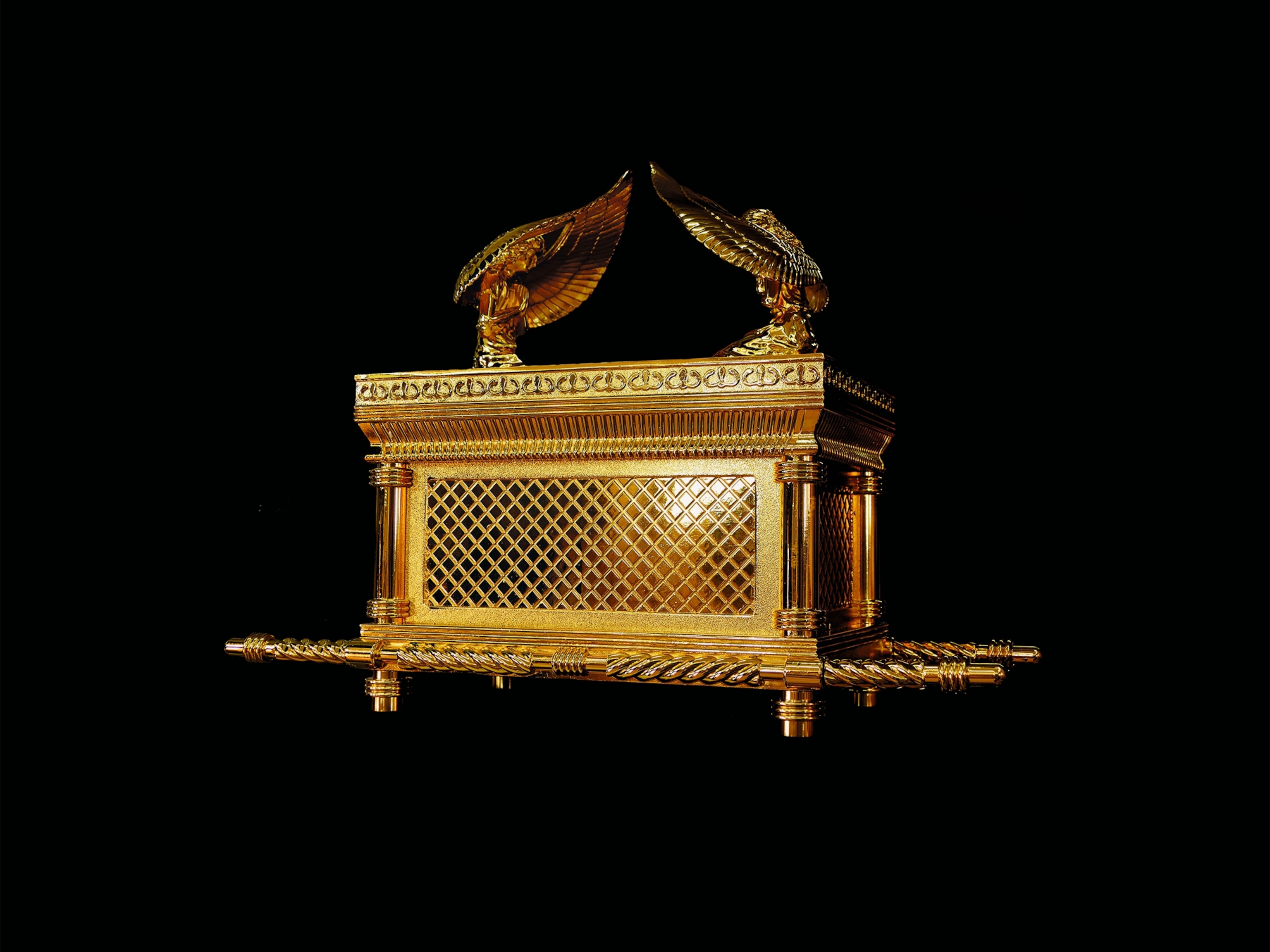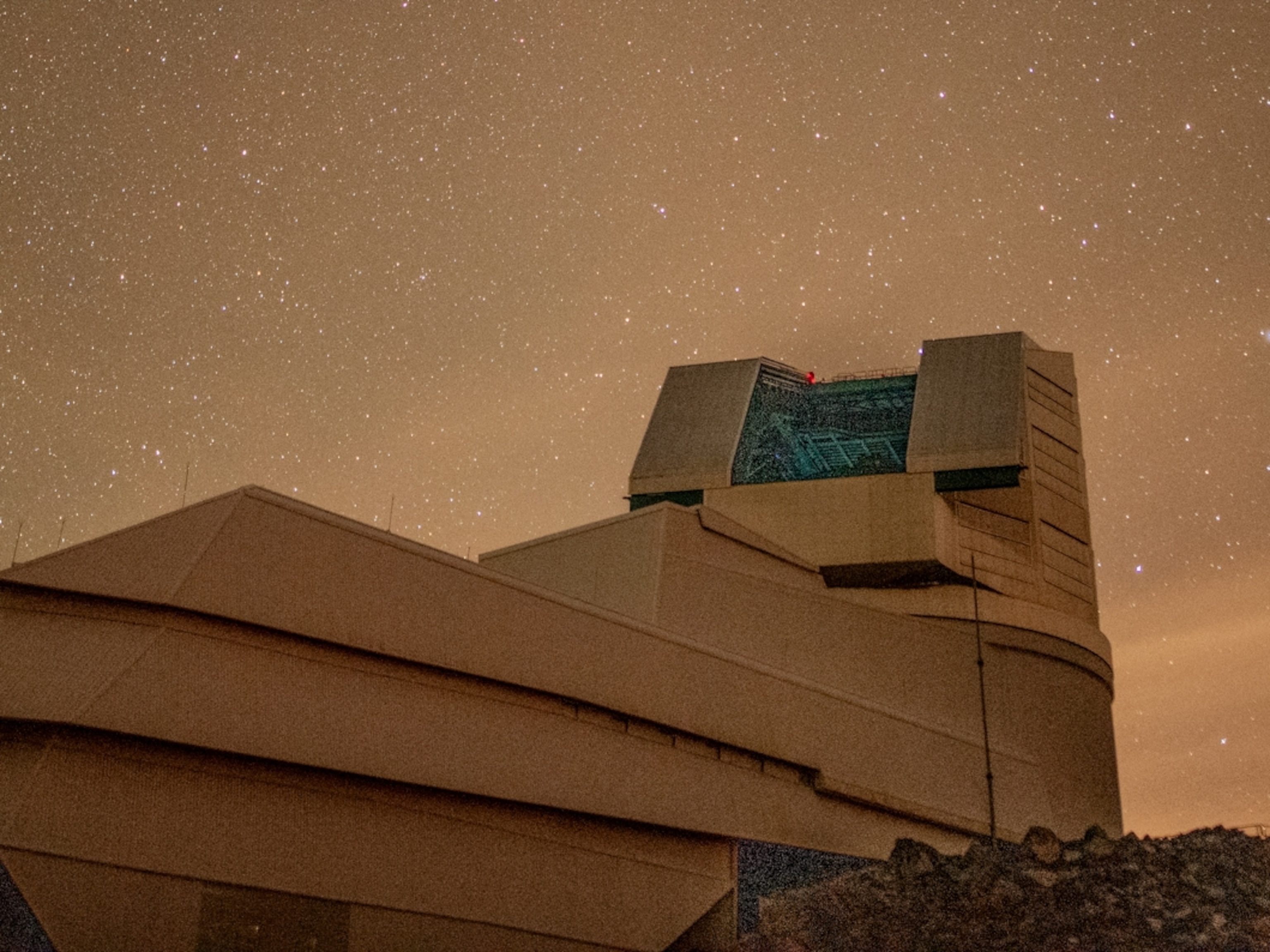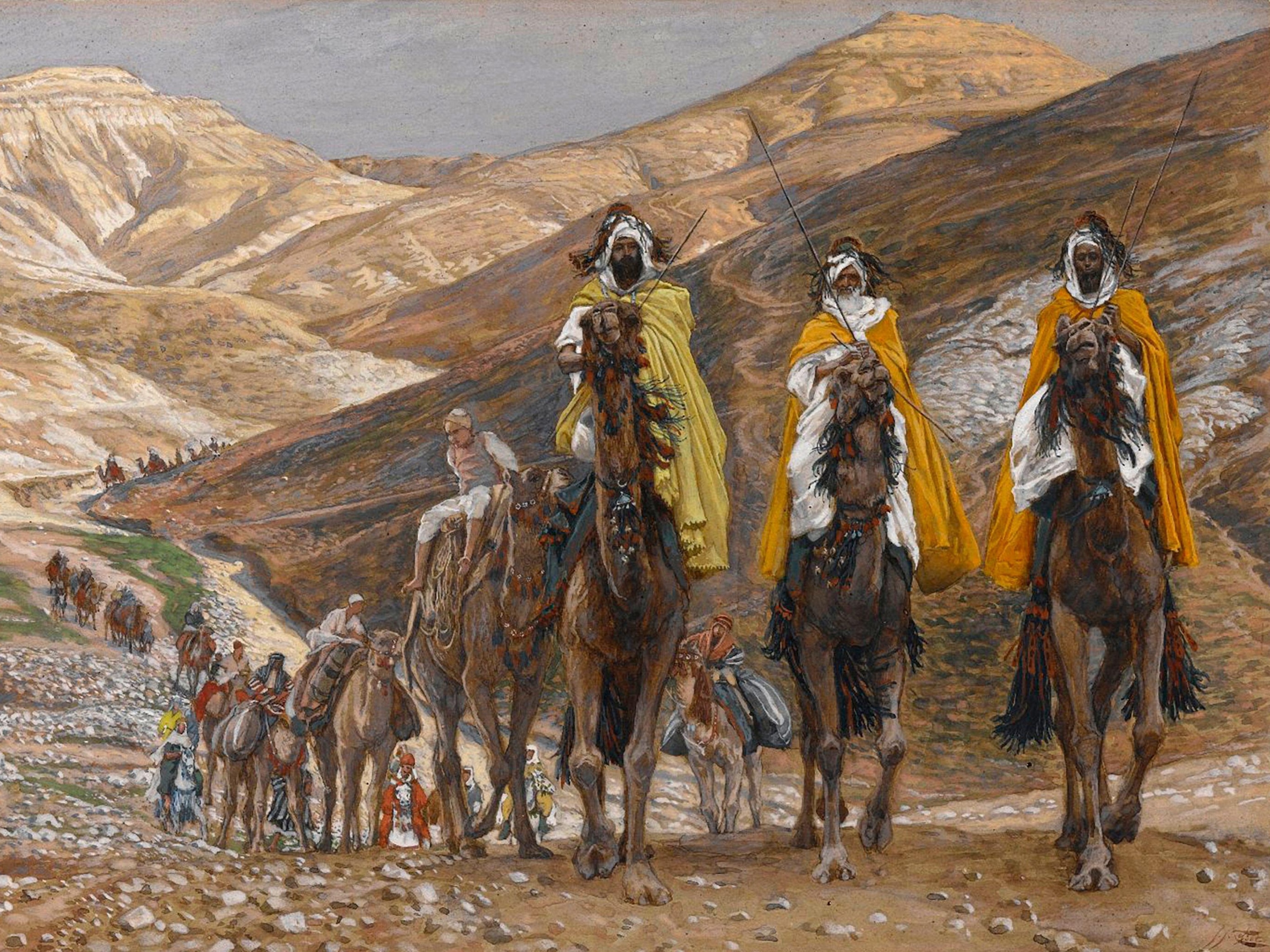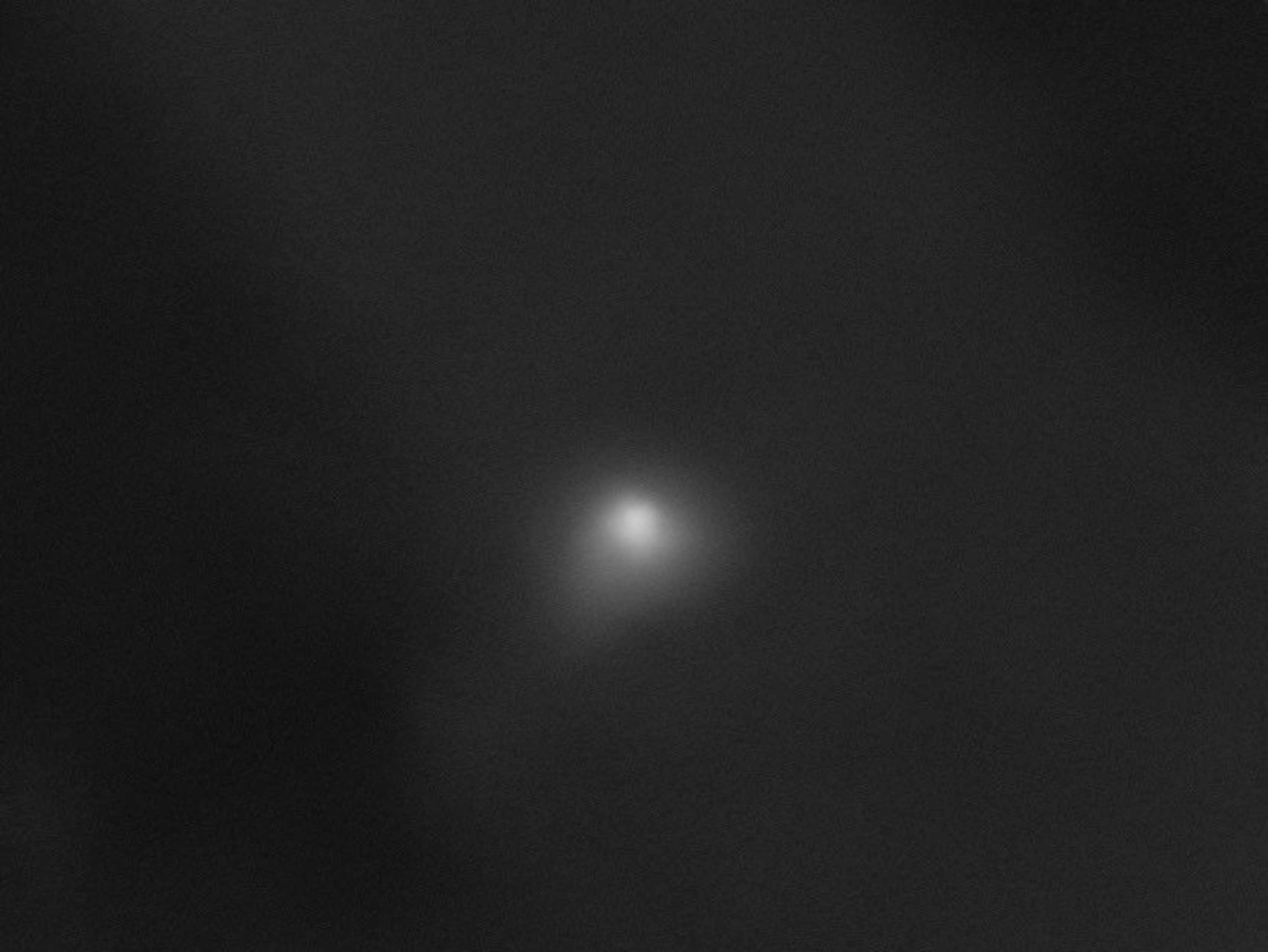
Why Newton Believed a Comet Caused Noah's Flood
In the 17th century, scientists used physics to explain the miracles described in the Bible.
“Late in the autumn of 1680 the good people of Manhattan were overcome with terror at a sight in the heavens such as has seldom greeted human eyes,” history tells us.
That terrible sight was a comet so bright that it could be seen in daytime. But, like Comet 45P/Honda-Mrkos-Pajdušáková—which is currently relatively close to Earth and may put on its best show this New Year's Eve—the Great Comet of 1680 was not a portend of doom but a scientific blessing.

Sir Isaac Newton observed the comet, and his calculations of its trajectory confirmed his universal theory of gravitation. The astronomer Edmund Halley also studied the comet. Newton’s equations helped him determine the orbits of 24 other comets and predict when they would reappear in the night sky.
The comet of 1680 would likewise inspire one of Newton’s closest colleagues and friends: the mathematician William Whiston, whose intricate calculations would bring him fame in Europe.
This comet, he declared, had passed close to Earth thousands of years ago—so close, in fact, that the comet had doused our world with water from its tail and exerted enough gravitational force to pull forth oceans from beneath our planet’s crust.
In short, Whiston concluded, the same comet seen by incredulous sky-watchers in the 17th century also unleashed the epic rainfall and great Flood that had cleansed the Earth of sinners in Biblical times.
Are You There, God? It’s Me, Newton.
Today, Whiston is not as well-known as his illustrious contemporaries. Still, he had an impressive resume. He succeeded Newton as the prestigious Lucasian professor of mathematics at Cambridge University, and he lobbied for passage of the Longitude Act in 1714, which revolutionized navigation.
Like many of his peers, he was also a theologian—and he was determined to reconcile apparent contradictions between mathematical laws and Biblical scripture.
“What set Whiston and Newton apart from modern scientists is their assumption that the Bible was literally true, and that God’s ‘book of nature’ could be used to understand God’s other book, the Bible,” says James Force, a professor retired from the University of Kentucky’s philosophy department who has written extensively about the two scientists.
“Today, we tend to keep science and religion in strictly segregated boxes. Not so Newton and Whiston.”
When Newton published his seminal work, Mathematical Principles of Natural Philosophy, he did more than lay the foundation for modern physics—he also helped usher in the concept of a mechanistic universe.
According to this thinking, God didn’t trouble himself with the mundane task of pushing the planets along in their orbits around the sun. Rather, the Almighty had created physical laws, such as gravity, that governed the operations of the universe. And those laws persisted as a direct result of God’s will. We live in a clockwork cosmos, proponents argued, that was designed, built, set in motion, and sustained by the “Divine Architect.”
But some noted thinkers saw a contradiction in this view. If God had established infallible natural laws, why were there accounts in the Bible that violated these very same rules?
The British theologian Thomas Burnet made this case in his best-selling treatise, Sacred Theory of the Earth. He calculated, for instance, that all the water on Earth—even with an additional forty days and nights of rain—could not account for the Great Flood.
As such, Burnet argued, there must be another scientific explanation for the great Deluge and the story, as told in scripture, could not be taken literally.
An Instrument of Divine Punishment
This was bold stuff, since Burnet was saying that parts of the Bible were not necessarily divine revelation. Some rejected Burnet’s writing by arguing that, even though God had created the natural laws of the universe, he periodically suspended them when it suited his purposes. This was, after all, the very definition of a miracle.
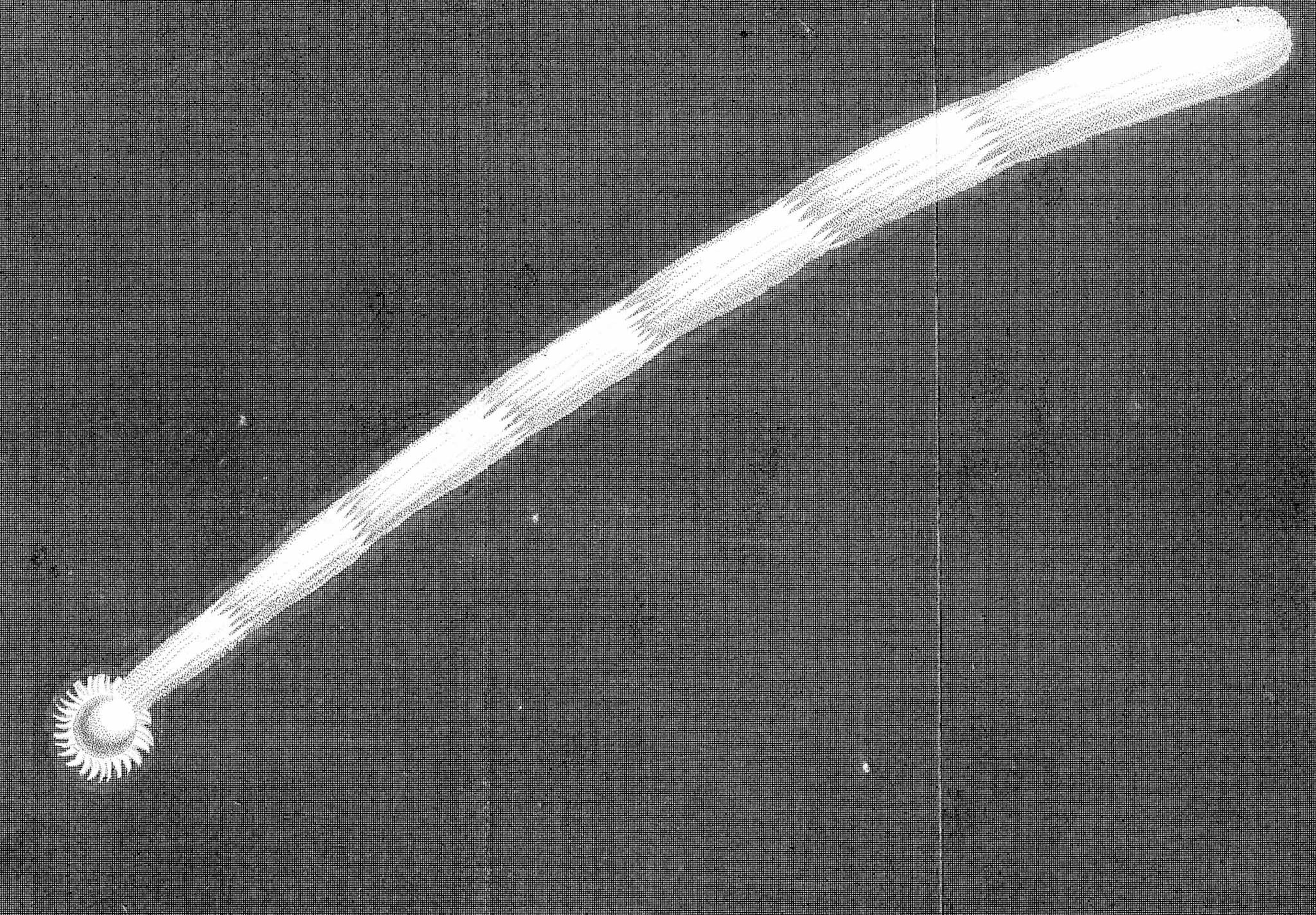
But Newton and his circle of thinkers didn’t care much for that explanation. In their view, the physical laws of the universe were divine. Gravity, for instance, depended upon "the constant and efficacious, and, if you will, the supernatural and miraculous Influence of Almighty God," Whiston wrote.
In other words, the delicate dance of gravity that kept the planets in motion was an everyday miracle. The miracles that got all the attention were incidents that occurred very rarely yet could still be explained within the confines of science.
This is where the Great Comet of 1680 enters the story.
In his book New Theory of the Earth, Whiston emphasized that the Bible was never meant to be an allegory or a scientific text. Instead, it was an historical account, “a true representation of the formation of our single Earth out of a confused Chaos, and of the successive and visible changes each day, till it became the habitation of Mankind.”
As such, Whiston argued, it was incumbent upon modern thinkers to find the scientific explanation for the literal descriptions of miraculous events in the Bible.
“For if those things contained in Scripture be true, and really derived from the Author of Nature, we shall find them, in proper cases, confirmed by the System of the World,” he wrote. “The knowledge of causes is deduced from their effects.”
Whiston, relying on the principles of gravity published by Newton, believed that he had found the answer for the Biblical Flood in a comet.
Calculations conducted by Edmund Halley suggested that the comet of 1680 swung by the Earth every 575 years. Working backward, Whiston noted that one such cosmic encounter occurred in 2342 B.C., which, at the time, was believed to be the date of the great Deluge.
According to the Book of Genesis: "In the six hundredth year of Noah's life, in the second month, the seventeenth day of the month, the same day were all the fountains of the great deep broken up, and the windows of heaven were opened. And the rain was upon the earth forty days and forty nights."
Whiston argued that a comet passing close to Earth could explain these phenomena. The gravitational pull of the comet, he said, fractured the planet’s crust. And the vaporous tail of the comet saturated the upper atmosphere with excess water, which lead to a cataclysmic rainfall.
The weight of the rainfall combined with tidal forces caused water beneath the surface of Earth to flow forth and wreak havoc.
Although this comet served God’s purpose, Whiston made it clear that this was not a case of the Almighty flinging it at Earth, like Zeus hurling a lightning bolt. Rather, God had created the comet in antiquity, setting it on a path destined by physics to perform its task.
As one commentator described it, “God had foreseen that man would sin and that his crimes, reaching their consummation, would demand a terrible punishment; consequently, He had prepared from the moment of the Creation a comet which would be the instrument of His vengeance.”
Everyone’s a Critic
Whiston dedicated his book to Newton, who endorsed the theories as plausible and reasonable.

“If Newton had radically disagreed with Whiston’s cometary hypothesis about the cause of the flood, or about the project of utilizing Newton’s cometary theories, to demonstrate the divine origin and truth of the Bible, he never would have permitted Whiston to be hired to take over the Lucasian Chair,” says Force.
The book became a best-seller. Five editions were published by 1737, and it was translated into German.
But new discoveries and theories about the formation of the solar system, the nature of comets, and the age and structure of Earth eventually rendered Whiston’s theories about the great Flood obsolete. (Even Halley’s calculations about the 575-year orbit of the comet were later found to be incorrect.) And, as the Age of Enlightenment progressed, so too did skepticism of the historical accuracy of the Bible.
Whiston himself became the subject of ridicule. “Such havoc did the Newtonian theory and the comet of 1680 work in the hands of this eccentric theologian!” wrote one critic. The famous 19th-century astronomer Camille Flammarion said that Whiston’s book demonstrated that “in the last century, there was no absurdity so gross that it was not repeated once it had been said, and, above all, once it had been printed.”
Contemporary historians, however, have been kinder to Whiston. He was one of the “natural philosophers” of his era who held deeply religious beliefs—yet who also believed that the workings of God’s creation were not closed off to inquisitive minds.
"Whiston was nowhere near the great scientific and mathematical innovator that the great Sir Isaac Newton was,” says Force. But, “as an indefatigable popularizer of Newton’s undoubted scientific contributions, as well as of the Newtonian connection between science and religion, Whiston was the Carl Sagan of his day.”



